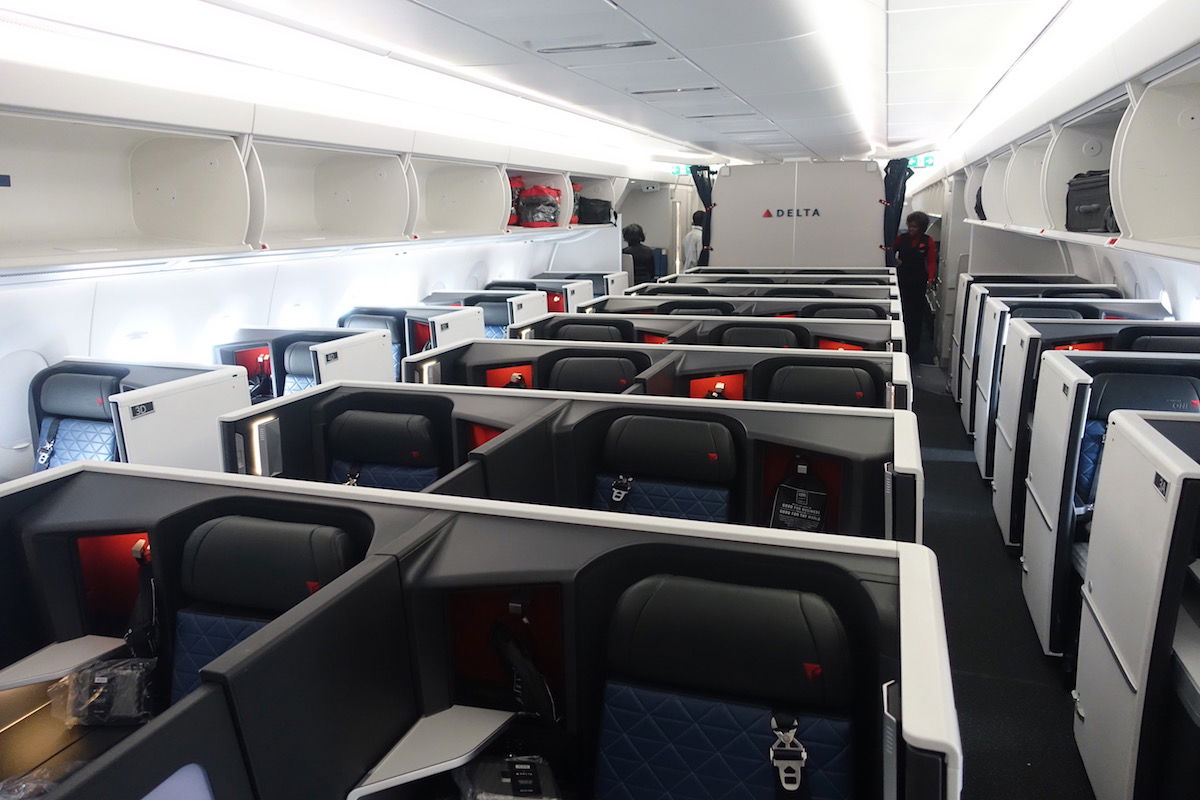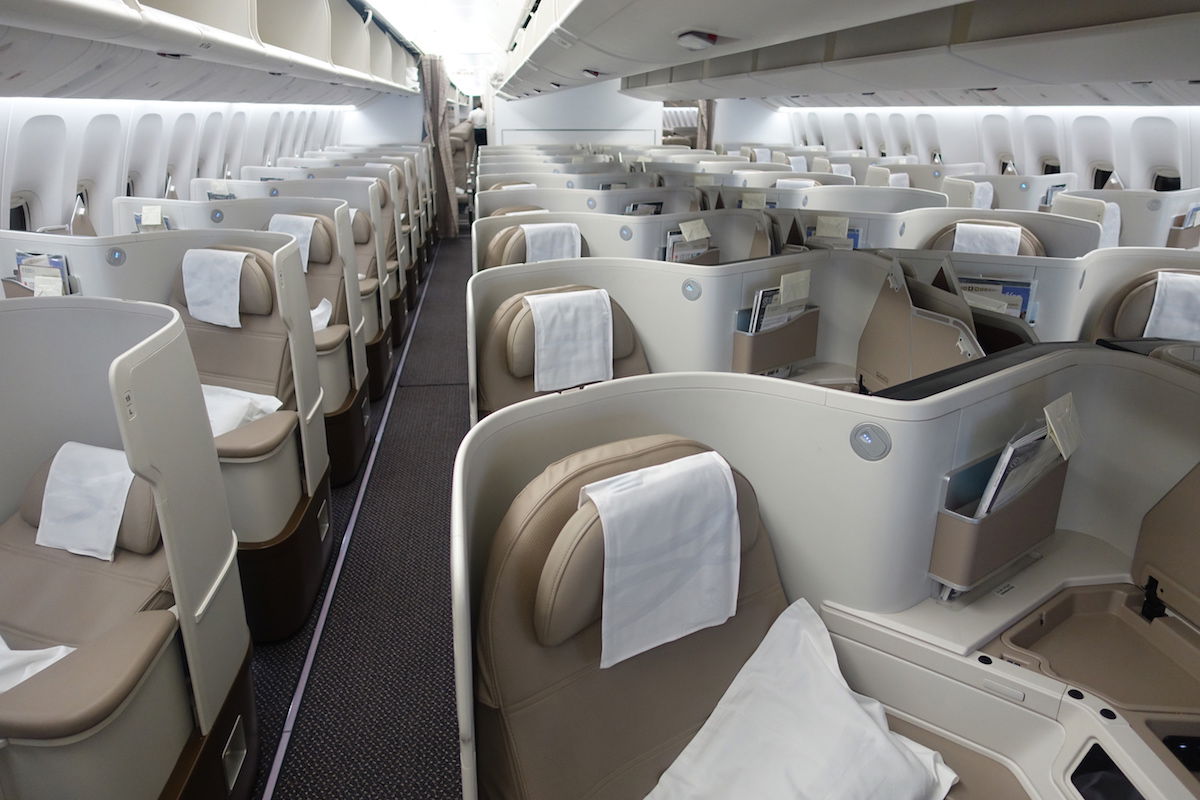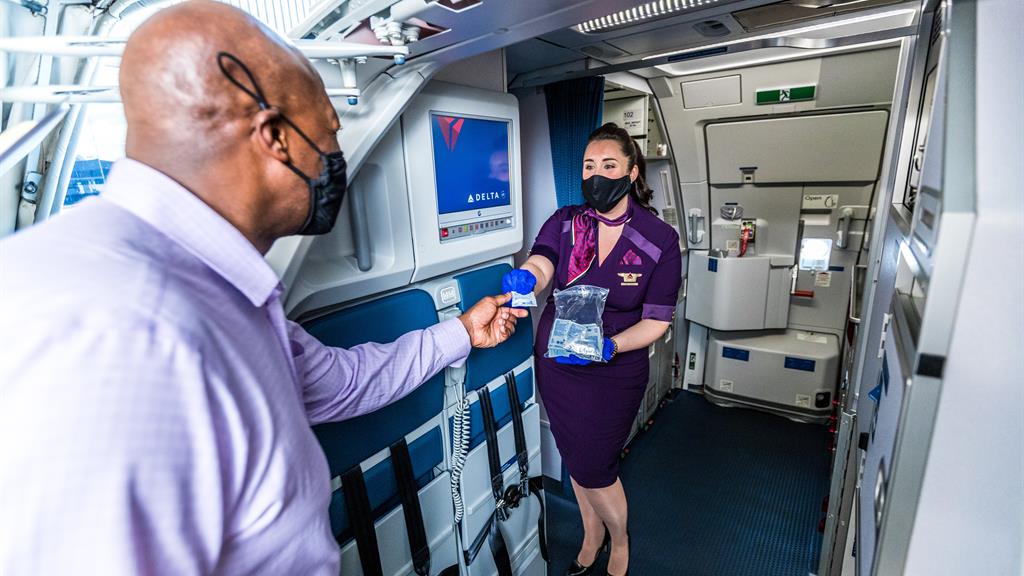Delta Air Lines is going to leverage its frequent flyer program to increase liquidity, after United Airlines did the same thing with its MileagePlus program a few months back.
In this post:
Delta’s $6.5 billion SkyMiles loan
It has today been announced that Delta will be leveraging its frequent flyer program to raise $6.5 billion in cash. The airline has set up SkyMiles IP Ltd., a newly formed Cayman Islands company that’s an indirectly wholly owned subsidiary of Delta.
Delta and SkyMiles IP Ltd. will be co-issuers of the notes and co-borrowers under the new credit facility. Then SkyMiles IP Ltd. intends to lend the net proceeds from the offering of the notes and the new credit facility to Delta, after depositing a portion of the proceeds in a reserve account.
The final terms and amounts of the notes and new credit facility are subject to market and other conditions, and may be different from expectations. Delta is hoping to use this cash to bolster its liquidity.
Frequent flyer programs are among the most profitable parts of airlines, which is why they can be used as collateral. As airlines look to boost cash reserves given the rough road ahead, it’s no surprise to see Delta leveraging its SkyMiles program for these purposes.
 Delta is leveraging its SkyMiles program to raise cash
Delta is leveraging its SkyMiles program to raise cash
Interesting statistics about Delta SkyMiles
Delta’s 8-K SEC filing ahead of this development contains some fascinating information about the SkyMiles program, which would otherwise probably never be made public. In no particular order, here are some of the highlights in the investor presentation:
- In 2019, SkyMiles generated $6.1 billion of cash sales, with net cash from operations of $2.4 billion
- Over 75% of cash flow for SkyMiles comes from partners, the biggest of which is American Express
- In 2019, Amex contributed over $4 billion to the SkyMiles program, and has been on a growth trajectory, as in 2009 it “only” generated $1.2 billion
- In 2019, Delta contributed a total of 8% of Amex billings, and 22% of card member loans (which is interesting, since it suggests those with SkyMiles are significantly more likely than average to finance purchases)
- SkyMiles has over 100 million members
- “SkyMiles has an attractive business model allowing flexibility to control costs and preserve margins” (in other words, miles can be devalued as the program sees fit)
- Delta SkyMiles Medallion elite members have on average been members of the program for 16 years
- 97% of SkyMiles redemptions are on Delta, while only 3% are on partners and for non-flying redemptions
- In 2019, over 60% of Delta ticket revenue came from SkyMiles members (compared to 52% in 2015), and Medallion elite members had average ticket revenue that was 1.5x higher than non-SkyMiles members
- 68% of SkyMiles members reside in non-hub cities (8% live in New York City, 6% in Atlanta, 5% in Los Angeles, 4% in Minneapolis, etc.)
- From 2015 to 2019, SkyMiles member acquisition has grown 138%
- From 2016 to 2019, Delta’s net promoter score among Medallion elite members increased by 45%
 Only a small percentage of SkyMiles redemptions are on partners
Only a small percentage of SkyMiles redemptions are on partners
Why this SkyMiles data is fascinating
Among the “big three” US frequent flyer programs, SkyMiles has by far been the most aggressive about going after the average consumer, while eliminating outsized value for those willing to put in a bit of effort.
For the average consumer, the good thing about SkyMiles is that miles can be redeemed for just about anything, and are almost like a currency valid on Delta. On top of that, miles no longer expire. At the same time, for savvier consumers, Delta has eliminated award charts, introduced dynamic pricing, devalued partner redemptions endlessly, and more.
While many of us may have a negative perception of the SkyMiles program, and especially the direction it has taken over the past few years, it’s clear that a majority of consumers don’t feel that way. After all, people are spending more on SkyMiles credit cards, revenue continues to increase significantly, net promoter scores are going up among SkyMiles elite members, and more.
For a vast majority of consumers, spending money on SkyMiles credit cards probably isn’t the best value (compared to a solid cash back card), but ultimately consumers aren’t always rational, and people do love the Delta brand. It’s kind of like the Apple Credit Card being wildly popular, even though there are more rewarding cards out there.
 Delta has the best service among the “big three” US carriers
Delta has the best service among the “big three” US carriers
Bottom line
It’s not surprising to see Delta use the SkyMiles program as leverage for new financing. The airline is hoping to raise billions of dollars to improve its liquidity situation. This isn’t surprising, as we’ve seen plenty of other companies with loyalty programs do this as well.
What’s most interesting to me about these situations is the associated info about the program that’s shared in regulatory filings. While the SkyMiles program has become significantly less rewarding for savvy consumers, by many metrics member satisfaction and engagement has approved.
I’m curious what you guys think — do people actually like the SkyMiles program more in the past few years, or just further appreciate the differentiated travel experience on Delta vs. competitors?





Delta often does have some useful and reasonable domestic unadvertised special offers. My last Delta redemption was so that my in-law's family of four could come down to Florida for a visit. 22.5K per round trip ticket for C+ at a time when cash fares were close to $500 per ticket. (C- would have been, IIRC, 17.5 k per ticket) So better than 2 cents per mile, which is a reasonably good value even if it doesn't have the cache of international business class.
@AI
Its happened before Air canada aeroplan, Gol smiles and, Aeromexicos rewards program have been at various times owned in whole or in part by different business then the airline, realistically they sign a multiyear contract and then hope to sell it back to the airline
So, Delta peeled off the most valuable part of the airline and moved it into an offshore corporation, right after accepting a massive bailout from American taxpayers. Got it.
What is scary is that when Kirby and Parker get a look at this, the "devaluation" electric charge will light up in their Pavlovian brains.
Jay - just because you get “out-sized value” from miles doesn’t mean a family of four that is redeeming miles to take the kids to a fun domestic vacation by flying Delta metal isn’t also getting great “value.” I love premium flight redemptions and much as anyone, but we shouldn’t be snobs about how many people get use out of miles...
"In 2019, Delta contributed a total of 8% of Amex billings, and 22% of card member loans (which is interesting, since it suggests those with SkyMiles are significantly more likely than average to finance purchases)"
Another data point that there are plenty of Americans who shouldn't have credit cards. "Yeah, let's finance some purchases but don't worry honey, at least we're earning SkyPesos!" The cigarette of the financial services industry, at least for the majority...
"In 2019, Delta contributed a total of 8% of Amex billings, and 22% of card member loans (which is interesting, since it suggests those with SkyMiles are significantly more likely than average to finance purchases)"
Another data point that there are plenty of Americans who shouldn't have credit cards. "Yeah, let's finance some purchases but don't worry honey, at least we're earning SkyPesos!" The cigarette of the financial services industry, at least for the majority of Americans.
"97% of SkyMiles redemptions are on Delta, while only 3% are on partners and for non-flying redemptions"
And a data point on how sooooo many flyers are probably getting shit value for their miles. I suppose this data point bodes well for us travel blogger types who learn tips and such for getting out-sized value from our redemptions.
I signed up for the sign up bonus recently. But when the times comes I'm cancelling it. There was no way I would actively stay trying to get consistent points with skypesos. This 60k bonus was one time exception.
Yes, because incorporating in the Cayman Islands is what everyone does, not because it’s a dodgy set-up designed primarily to avoid corporate tax liabilities or process dodgy money (the Caymans is one of 3 British Overseas Territories which enable the world’s richest criminals to launder all their money, and some of the world’s biggest corporations to avoid tax. The other two are the British Virgin Islands — so beloved of everyone’s cuddliest billionaire, Richard Branson...
Yes, because incorporating in the Cayman Islands is what everyone does, not because it’s a dodgy set-up designed primarily to avoid corporate tax liabilities or process dodgy money (the Caymans is one of 3 British Overseas Territories which enable the world’s richest criminals to launder all their money, and some of the world’s biggest corporations to avoid tax. The other two are the British Virgin Islands — so beloved of everyone’s cuddliest billionaire, Richard Branson — and Bermuda).
Why is Delta messing around in the Cayman Islands? Is there not a single state in the USA where they’d be happy to incorporate?
@Endre - You’re right. It’s better than nothing, but only marginally better.
I enjoy flying Delta but generally I avoid using them because of the basically worthless value of SkyMiles. Anyone who thinks 75k miles for a round trip domestic ticket is bat crap crazy. There are better options in the marketplace.
Khati - that assumes people have an interest in flying from Paris to Dubai. Some may want to fly the family from Minneapolis to San Diego or something.
Most people are not strategic about how they use SkyMiles unlike many of us. They don't think about the value of 1 SkyMile. They simply think "I've got SkyMiles. They were free. Let's use them!"
So many people will then use SkyMiles to buy high-priced domestic redemptions a few months before travel (at which point, the coach ticket costs 75k+ return), when they could have instead flown Air France biz class from Paris to Dubai...
Most people are not strategic about how they use SkyMiles unlike many of us. They don't think about the value of 1 SkyMile. They simply think "I've got SkyMiles. They were free. Let's use them!"
So many people will then use SkyMiles to buy high-priced domestic redemptions a few months before travel (at which point, the coach ticket costs 75k+ return), when they could have instead flown Air France biz class from Paris to Dubai for the same price if they had purchased it 330 days in advance.
@lucky
Practically speaking what would happen if Delta defaulted and the creditors took control of SkyMiles? Would that mean that the frequent flyer program and the airline would be owned by two separate groups? In that case couldn't Delta just refuse to honor SkyMiles? I get that having to start a new frequent flyer program would be difficult but without being owned by Delta what value would SkyMiles have?
"While many of us may have a negative perception of the SkyMiles program, and especially the direction it has taken over the past few years, it's clear that a majority of consumers don't feel that way. After all, people are spending more on SkyMiles credit cards,"
Because we have no other way, but suck it up and use it even for the little value we get out it. It is still better than nothing.
A strong majority of redemptions across all frequent flier programs are domestic, right? And probably even more for Delta? For domestic redemptions, are American and United miles much better than Delta miles?
The most popular frequent flier program, i think, is Southwest, because it provides clear and consistent value on the most useful and frequent redemptions, which are on domestic flights. Delta is probably similar.
Your next response would be “then people should just...
A strong majority of redemptions across all frequent flier programs are domestic, right? And probably even more for Delta? For domestic redemptions, are American and United miles much better than Delta miles?
The most popular frequent flier program, i think, is Southwest, because it provides clear and consistent value on the most useful and frequent redemptions, which are on domestic flights. Delta is probably similar.
Your next response would be “then people should just use cashback cards,” but spending money on miles earnings cards also adds to miles you earn through flying and other activity.
I dabble in most of the mileage programs but switched mainly to Delta because I fly them for business travel.
That 97% redemption rate on Delta is fascinating!